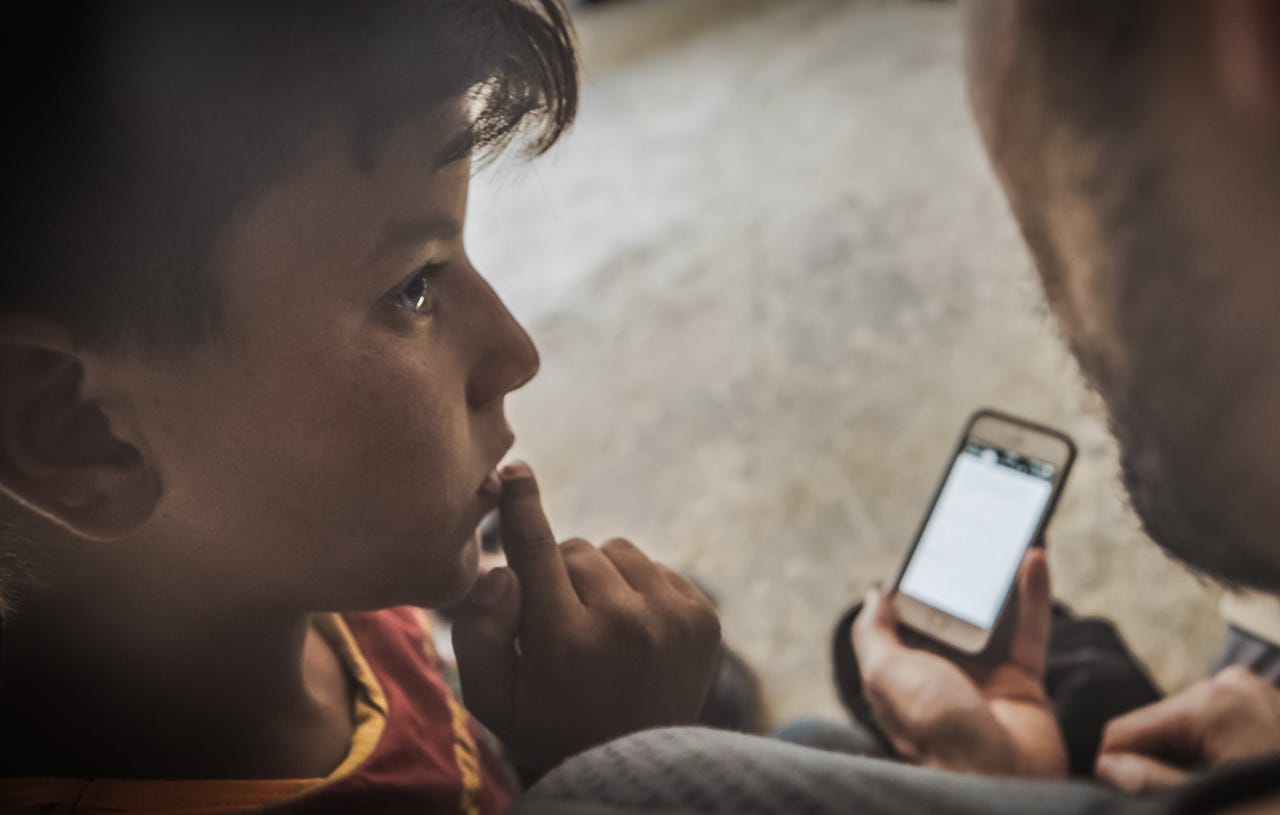How young Lebanese devs are tackling their country's Syrian refugee crisis


What started with a Siri-like chatbot to provide localized refugee information led to various UN agencies backing the idea of a hackathon to develop tech to help in Syria's humanitarian crisis.
By February this year, Lebanon was hosting about 1.1 million refugees from neighboring Syria, which amounted to about one in five people in the country, according to Amnesty International.
Since then the numbers have continued to grow. Alongside those figures, 4.8 million Syrian refugees are registered with UNHCR in Egypt, Iraq, Jordan, Lebanon, and Turkey.
With Syria's civil war and the resulting humanitarian crisis showing no signs of abating, one Lebanon-based US entrepreneur, Mike Clarke, director of The Humanitarian Innovation Lab, is working with agencies like UNHCR, UNICEF, and OCHA "to inspire and cultivate new technologies that can quickly improve the current response to the refugee crisis in Lebanon".
"I was watching the news and the refugee crisis was a daily thing. It was constantly in your face but it was always constantly about Europe. And I found that interesting because no one was talking about how in tiny little Lebanon one in four people in the country's a refugee at this point," Clarke tells ZDNet.
"They're dealing with the situation, whereas Europe's up in arms about a few thousand people, not 1.5 million."
Clarke, who had previously worked for "a bunch of startups in New York", was a Rotary Foundation ambassadorial scholar at the American University of Beirut in 2013. He watched developments, always curious to see if Lebanon's tech scene was doing anything to help.
"Lebanon, and especially Beirut, has all the right variables and kind of requirements for thinking through what role tech could play," he says.
"They have the ecosystem, they have intelligent people, they have awareness of the most modern approaches to different things in software and hardware. So I reached out to some friends and they were like, 'No, nothing's really happening here'."
He admits he was very surprised by this absence of any tech response. So he decided to host a hackathon focused specifically on alleviating the Syrian refugee crisis in Lebanon. It's a model he knows, having won a prize at an Abu Dhabi hackathon earlier this year for a Siri-like chatbot that provides localized refugee information.
"I went to UNHCR, and we talked about this chatbot. And then I started to go to the camps, I started to go meet with NGOs and to kind of see the problems," he says.
"[At] UNHCR, I was like, 'Look, the chatbot concept is cool but there's a lot more low-hanging fruit that doesn't require nearly the amount of time and investment that technology can innovate around really quickly'."
After successfully pitching the hackathon concept to UNHCR, UNICEF, and UNOCHA also came onboard, putting up money for the initiative and setting the challenges that they wanted tackled.
"To have all these UN groups come together, [meant] the thing gained a ton of momentum very quickly," Clarke says.
"And it turned into a much bigger event than I had anticipated. We had students from multiple universities all over Beirut. We had kids from Tripoli. We had kids from the south [of Lebanon] in Saida."
Over the course of three days, 70 participants gathered in the Beirut Digital District to explore and prototype systems aimed at improving key aspects of the UN's refugee response strategy in Lebanon. From the 12 teams that participated, three projects were selected for further development, with 15 people currently working on these initiatives.
KwikSense living-conditions tracker
KwikSense, the winning project, received $3,000 in development funding, and should go into the field this month.
Described as "a plug-and-play IoT platform that allows users to deploy and measure the living conditions of any home or community", the product tracks the temperature or environmental living conditions in a refugee shelter.
For the UN and its partners, this data can help them decide how and where to distribute services. This information is especially important as winter approaches, given the volume of vulnerable refugees living outside in tents.
"What's interesting about this project is the hardware guy on that team is a 16-year-old whose dad is a taxi driver in Saida in the south of Lebanon, which is a super poor area," Clarke says.
"He's been on the news. His whole life has changed from this hackathon and this whole program, and he's an amazing kid."
Moeeny banking assistant
Moeeny, the second project being developed post-hackathon, is the product of a merger between two hackathon teams from Rafik Hariri University and Torch Academy, a Beirut-based IT training organization. Moeeny, which means 'my assistant', is designed to help Syrian refugees access banking services.
"You have multiple organizations giving refugees cash assistance on different cards and a lot of the refugees who are here, a lot of the Syrians, have never had a banking experience until they came to Lebanon," Clarke says.
"A lot of the people who receive aid, it's like 180,000 households, don't understand the eligibility criteria. They don't understand what programs are they eligible for, why did they get money one month and not the next month. The UN agencies and the banks don't have the manpower or the staff to deal with this."
Through the app, Clarke hopes to reduce calls and complaints, as well facilitate automated communication between beneficiaries and cash providers. The service plans to begin user testing at the end of November.
Digital health diary Vaxy-Nations
The third service, Vaxy-Nations, is a digital health diary, designed to help users and care providers with health related conditions and alerts.
With many Syrian refugees living in informal settlements and shelters across Lebanon and elsewhere, it can be very difficult to track which children have received their vaccinations. Vaxy-Nations aims to help address that issue by keeping a digital record of immunizations.
To do all this, Clarke highlights the support he's received from companies such as Wamda, ArabWIC, or Women in Computing, UK Lebanon Tech Hub and the Beirut Digital District.
As well as offering "the best Wi-Fi in the country", the Beirut Digital District, "gave us the hackathon space and they also gave us free office space to the teams afterwards, which was really cool".
"We still use the space today," he adds.
As work continues on these three products, Clarke is already thinking about future initiatives.
"We're working on another hackathon. We're literally going to set up a tented settlement in the heart of the Beqaa Valley that's specifically for technologists from Lebanon and around the world who want to come and be completely embedded in the crisis. That will be their space to build, to do focus groups, whatever they need to do," he says.
"We need more of this. And what's interesting is there's a lot of people, a lot of engineers, who do want to contribute their skillsets to these types of challenges, but just have a hard time finding an easy way to do it."
Clarke admits that these projects and supporting the teams making it happen have taken over his life.
"It's not the most financially rewarding thing I've chosen to do," he says. "But it's probably the first time in my life that I wake up at 6am without an alarm clock because I actually love the challenges and the day-to-day.
"It helps put things into perspective for people, when it's easier for me to find someone to go on a date with on Tinder than it is for a refugee in Lebanon to find a school for their kid."
Over three days, 70 participants gathered in the Beirut Digital District to explore and prototype systems aimed at improving the UN's refugee response strategy.
Read more about tech in the Middle East
- From women in tech to patents: Nine areas where Middle East is winning, and losing
- Can 'oil shock' help kickstart a new tech dawn for Saudi Arabia?
- Navigating the visa minefield and the lack of women: Silicon Valley lessons from a Middle East entrepreneur
- IoT, mobile, smart cities: The forces driving Middle East IT spend beyond oil